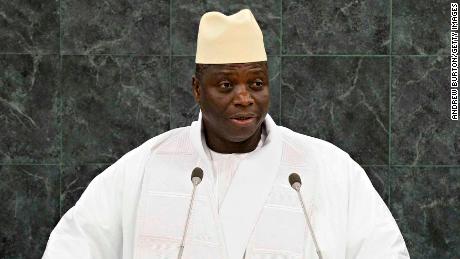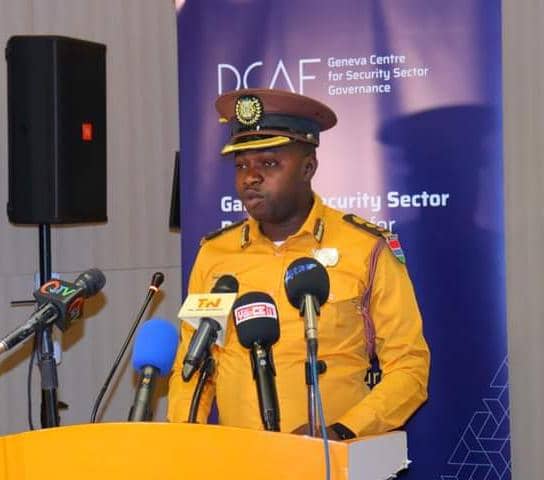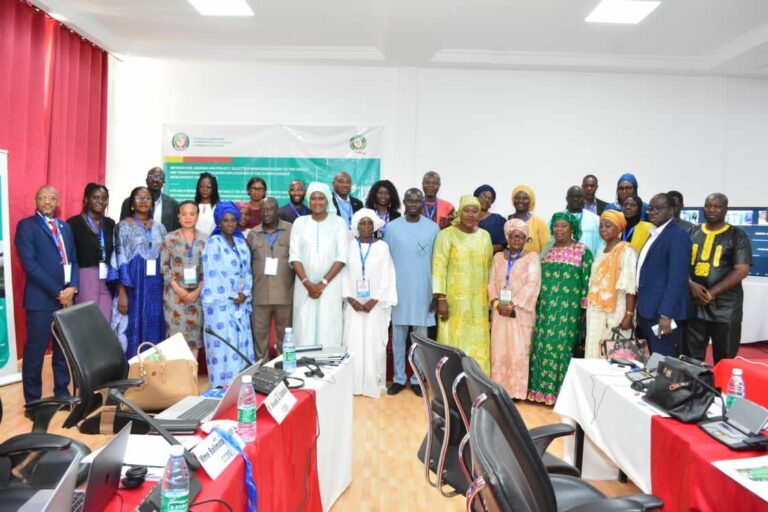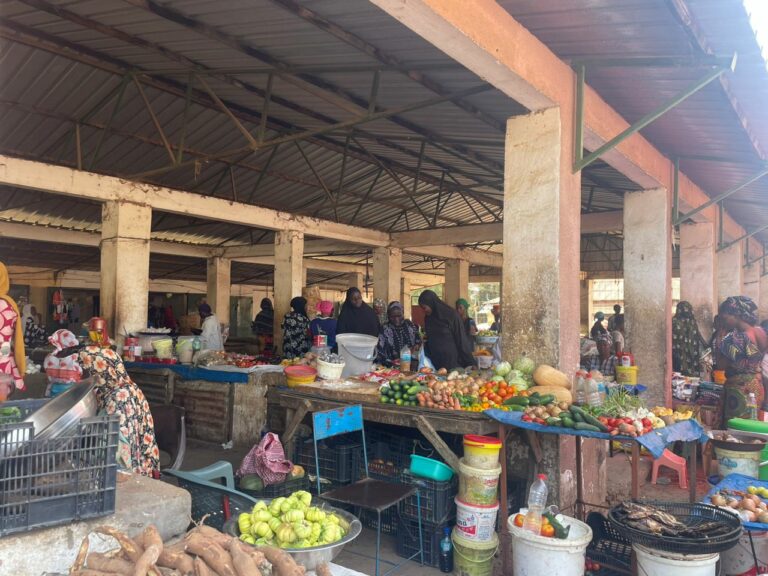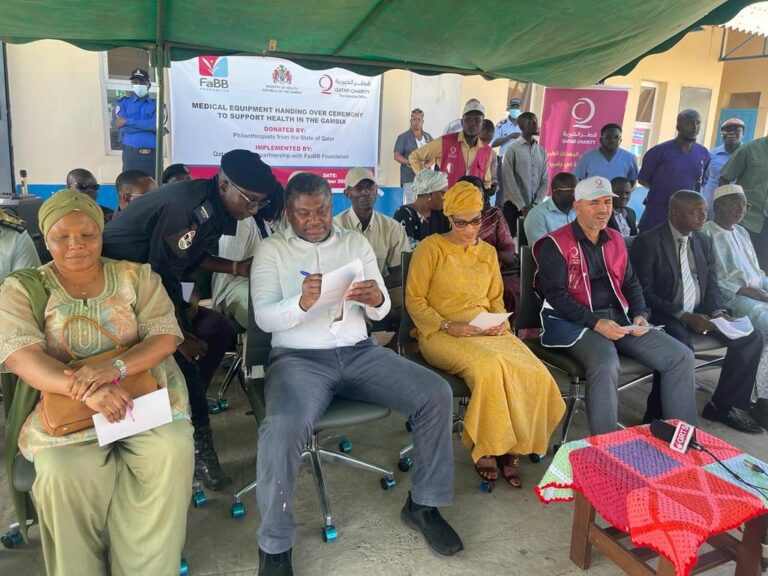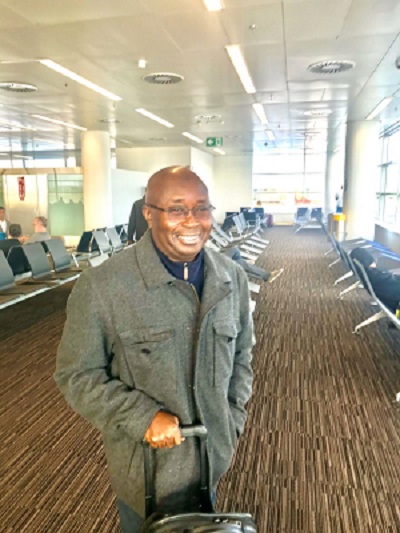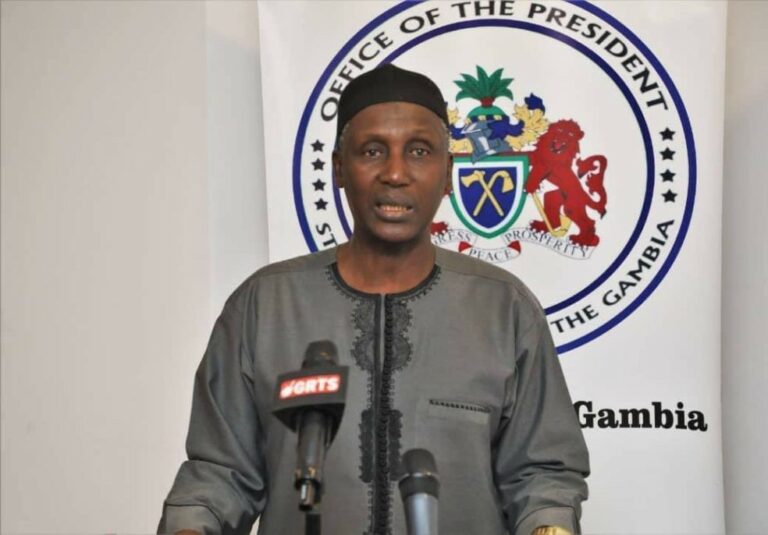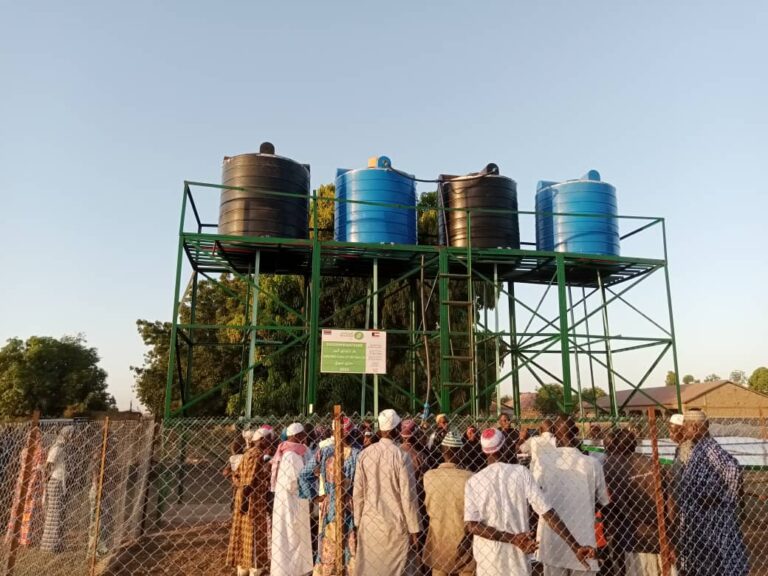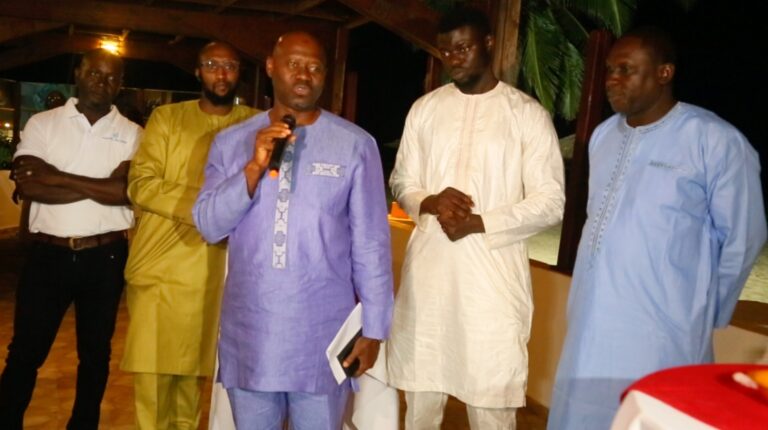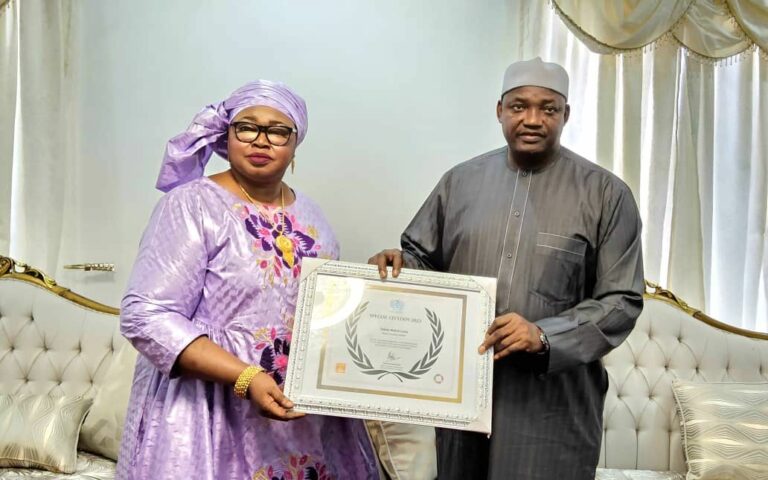El Hadji Omar Massaly, the 34-year-old, founding president of Editions ELMA, shares the aspirations of his pan-African publishing house. A multifaceted individual, he serves as an author, publisher, journalist collaborating with Jeune Afrique, and CEO of Editions ELMA, a publishing house renowned for producing significant titles. The Fatu Network caught up with this pan-African publisher during the Gambia African Book Fair.
You took part in the first edition of the Gambia African Book Fair. How do you rate this event?
EL Hadji Omar Massaly: Participating in the inaugural Gambia African Book Fair was truly enriching. I extend my gratitude to the Fair’s organizer, Fatou Camara Junior, a dedicated pan-Africanist committed to propelling her nation’s youth forward. This event provided a platform for me to discover exceptionally talented young authors whose works deserve recognition. ELMA, our pan-African publishing house, is keen on publishing and supporting some of these emerging talents.
It is crucial for the government to endorse and back this fair, serving as a showcase for both African and Gambian literature. Such initiatives require support to empower authors to reach audiences across Africa and beyond. I, along with a delegation, actively participated because I believe in the significance of inclusive cultural initiatives involving countries within the sub-region.
On the sidelines of the Fair, you made official the choice of the representative of your pan-African publishing house, Fatou Camara, in Gambia. Can you tell us a bit about your publishing house?
EL Hadji Omar Massaly: Fatou Camara’s selection was intentional; her dedicated work reflects a profound commitment to her country and Africa. Her fervor for literature and culture aligns with mine, fostering a shared vision for the continent. Together, we aim to synergize our efforts, establishing a professional cross-border publishing house that ensures authors receive the sought-after quality of production recognized internationally.
ELMA emerged at a critical juncture when Africa grapples with economic, social, and environmental challenges, hindering the development of a robust book industry. Despite being a source of employment, the book industry in Africa has yet to be fully recognized for its potential contribution to economic development, contrasting with some Western counterparts.
Historically, after gaining independence, various publishing houses were established to promote African literature, serving as a means to express our diverse cultures. Regrettably, over subsequent decades, these publishing houses encountered setbacks. However, it’s imperative for the book market to solidify its presence as a significant cultural industry in Africa.
There is an urgent need for Africa, which has demonstrated dynamism and innovation in various sectors in recent years, to focus on developing a book industry capable of contributing to its economic structural transformation.
ELMA, a pan-African publishing house employing an innovative strategy and a resilient approach, aims to play a central role in facilitating the creation of a genuine book economy. This initiative is designed to provide all participants—authors, publishers, printers, distributors, and retailers—with the opportunity to sustain themselves through their craft.
To achieve this goal, ELMA has established six collections: Thinking about Africa, Development Economy, Literature, School Education, African Entrepreneurs, and Africans in the Century. The objectives of each collection are outlined in our catalogues, accessible through our representatives. In essence, these collections aim to empower intellectuals, authors, cultural figures, and journalists to contribute to changing the narrative about Africa. In the words of economist Felwine Sarr, it involves discovering the vast spaces of possibility in African reality and making them fruitful.
Why did you choose The Gambia when it’s an English-speaking country?
EL Hadji Omar Massaly: As a pan-African publishing house, we operate across borders, fostering a connection among authors from both English-speaking and French-speaking countries. Our aim is to transcend language barriers, recognizing that the themes explored by our authors hold relevance for all nations. To facilitate this cross-cultural exchange, we have established a translation department dedicated to translating books by select authors. Additionally, manuscripts written in English undergo evaluation by a dedicated reading committee exclusively handling works in that language.
Do you have representatives in other African countries?
EL Hadji Omar Massaly: Certainly, we currently have representatives in countries including Gabon, Central Africa, Côte d’Ivoire, Cameroon, and Guinea Conakry. Our ongoing efforts involve expanding our presence into additional countries to further extend our reach and impact.
What are the objectives of Éditions ELMA?
EL Hadji Omar Massaly: ELMA’s goals include transforming the book sector into a thriving cultural industry, a challenge critical for Africa’s development, as knowledge is fundamental. Taking France as a benchmark, where publishers are projected to generate €2,911 million in turnover and sell 448.5 million copies in 2022, the book market is set to surpass €4 billion. This underscores the significant role the book sector plays in the cultural industry.
The question arises: Why not replicate this success in Africa? With the backing of investors and partners, we believe it’s possible to build a sustainable sector that generates long-term employment—an essential challenge for ELMA.
Another objective is to reshape perceptions of the continent through intellectual production. Western media, as per several studies, allocates only 2% of its coverage to Africa, despite being home to 17% of the world’s population. This limited focus hinders a comprehensive portrayal of African reality, often projecting a pessimistic and clichéd image. Addressing this disparity is a pivotal mission for ELMA
In these circumstances, depicting the full diversity of the continent becomes challenging. News coverage often revolves around tragic events, perpetuating a negative and pessimistic image of a continent marked by war, corruption, terrorism, disease, and famine.
I firmly believe that a publishing house holds significance in terms of intellectual and cultural sovereignty. Given the prevailing perspectives on Africa, often marred by darker narratives, our publishing houses must contribute to illuminating the continent. Empowering our authors to contemplate Africa and restore balance is crucial. It’s not about silencing internal challenges, but also about spotlighting the positive developments occurring in Africa. This is the precise role our publishing house is dedicated to fulfilling.
Are you ready to collaborate with the Gambian Ministry of Culture?
EL Hadji Omar Massaly: Certainly, we are actively engaged in Gambia through our dynamic and open representative. We express our keen interest in collaborating with the Ministry of Culture and take this opportunity to appeal to the minister and the government for a partnership to advance the book sector. ELMA is prepared to contribute its expertise and skills to support the relevant ministry. The Gambia, with its significant cultural potential and abundant young talent, presents an opportunity to showcase the country as a destination. Emphasizing culture is a powerful marketing tool for promoting the nation on a global scale.
Have you already published books in English?
EL Hadji Omar Massaly: Certainly, we have published books in English, and several titles originally in French have undergone translation. Additionally, we are exploring the prospect of publishing authors from Gambia, facilitated by our current representative in the country. It is our sincere wish to further enrich our literary offerings through collaboration with Gambian authors.

